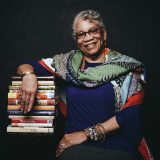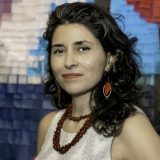Jessica B. Harris, Ph.D., is celebrated as America’s leading scholar on the foods and foodways of the African Diaspora. Author of 12 critically acclaimed books, she has lectured on African American food and culture across the U.S. and abroad, and her work has appeared in numerous publications.
Among her awards and accolades are an honorary doctorate from Johnson & Wales University and the DeMasters Award from the Association of Food Journalists. Dr. Harris was recently inducted into the James Beard Foundation’s Hall of Fame and was named one of Time magazine’s 100 Most Influential People of 2021. High on the Hog: How African American Cuisine Transformed America, the popular Netflix series inspired by her most recent book, has been renewed for a second season.



